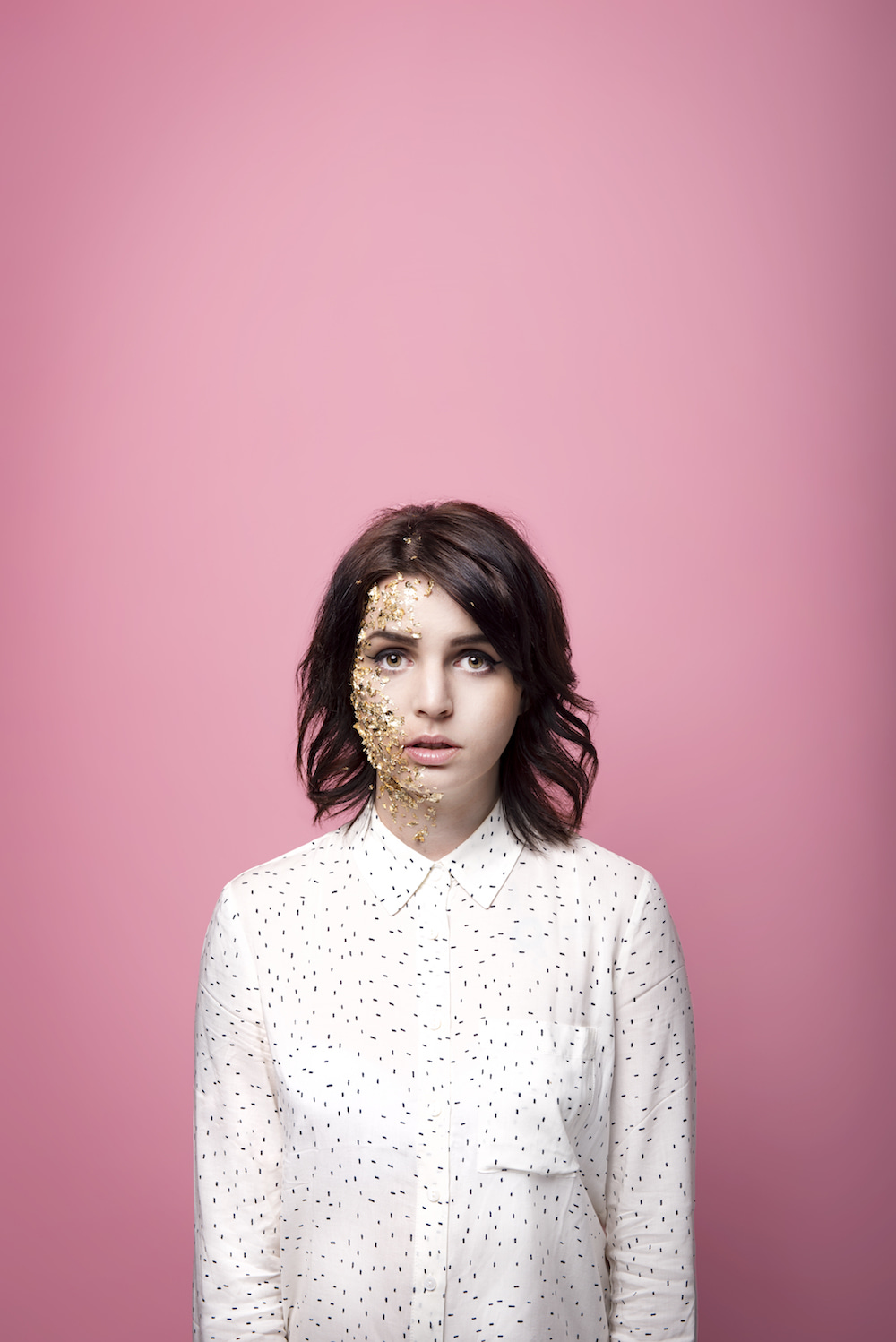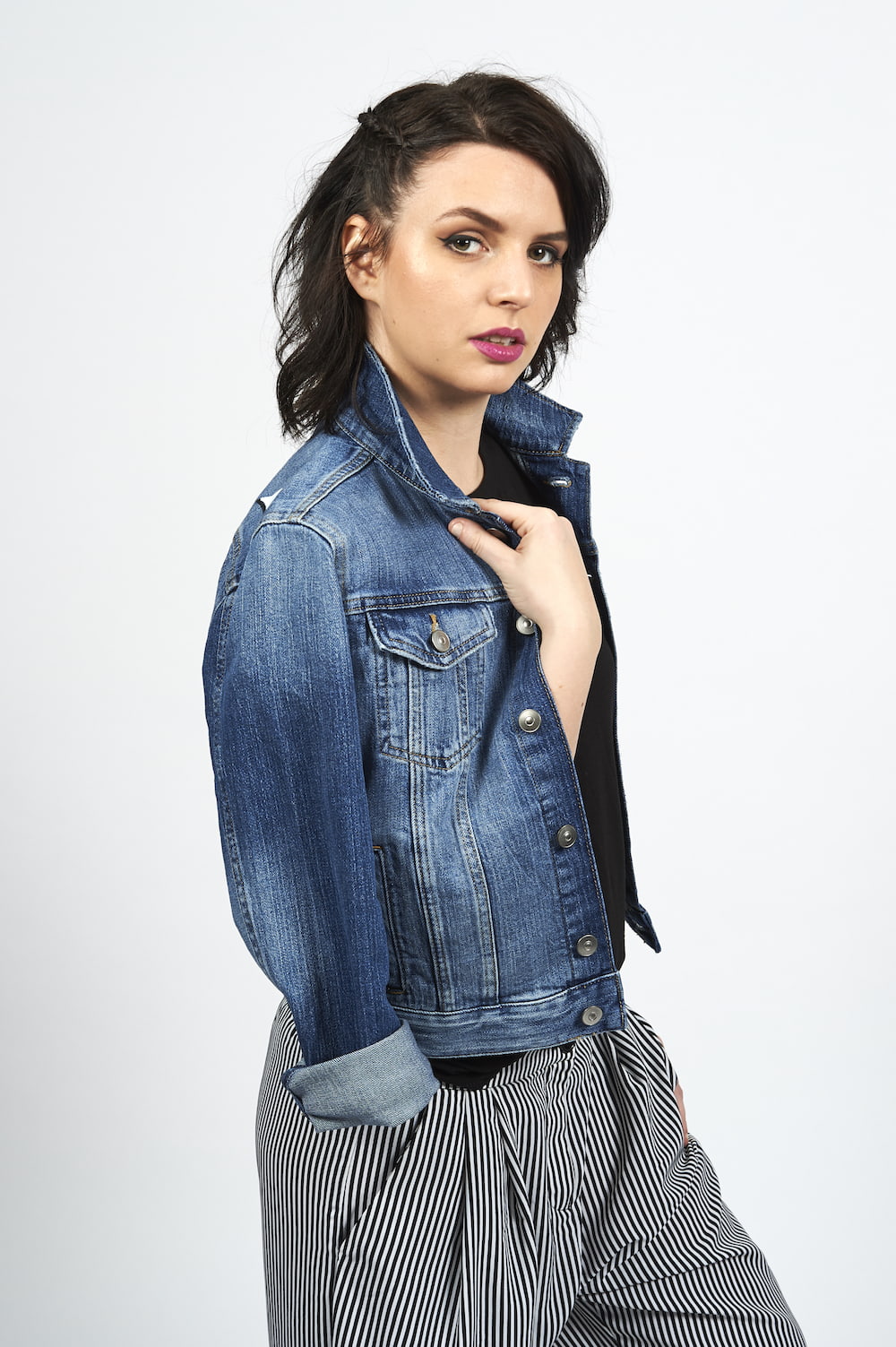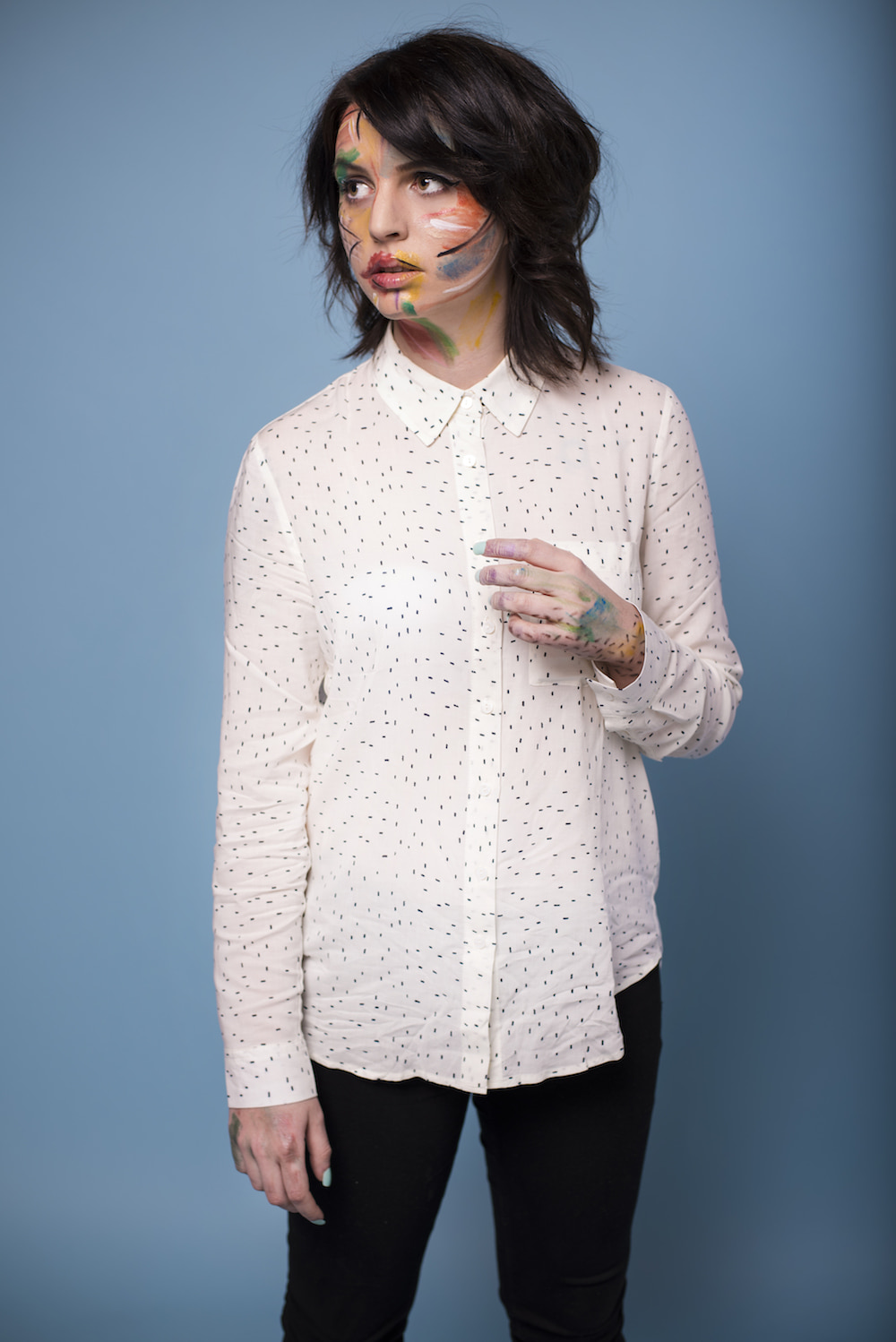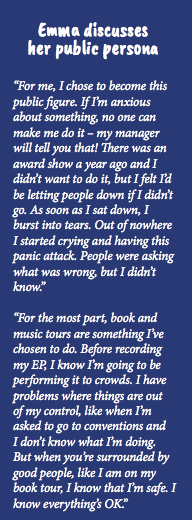YouTuber, musician, and now author, Emma Blackery talks candidly about depression, separation anxiety and the importance of speaking up

Emma Blackery
Since launching her YouTube channel in 2012, Emma Blackery has seen some dramatic changes in her life. Initially known for her no-nonsense videos that tackled both hard and humorous topics head-on, she quickly built up a loyal following of fans, not least because she was also a talented musician.
Now, five years on, and still only 25, Emma has collected over 1.4 million subscribers and released five EPs. But there’s more. Based on a YouTube advice series she first created in 2013, Emma is releasing her first book, Feel Good 101, which covers a myriad of topics, from mental health to relationships.
Secretly battling depression and intense separation anxiety since she was 13, Emma is now a brave advocate for speaking up about mental illness. Happiful met her in London to find out what makes this vulnerable yet remarkable writer and musician tick...
Could you tell us what first triggered your depression when you were 13?
My parents were divorcing, I was being bullied, my friends weren’t being the best friends they could be, and then you have exam stress and hormones. I don’t want to give that excuse of “you’re young and hormonal” but it’s true – it does play a massive part. All those things add up, and I started feeling depressed. Back then, no one spoke about depression. It wasn’t something I felt I could talk about.
Opening up to someone about my mental health was terrifying. I'd never done it before
You also suffered with separation anxiety. How did that develop?
It started when my dad was battling illnesses when I was 12, then nothing for a while, and then, at 17, it just hit me like a brick wall. I realised that people in my life are not immortal, and I started having specific anxiety about the mortality of my dad. I would have [panic attacks](https://www.nhs.uk/Conditions/stress-anxiety-depression/Pages/understanding-panic-attacks.aspx) when my dad didn’t answer the phone straight away, and I couldn’t leave my home town in case something happened to him. But I didn’t say anything. How do you tell your dad: “I have anxiety based around the fact that you’re going to die.” It lasted until a year ago when I actually took steps to try to do something about it because it was hindering my life.
Did you try counselling?
I’ve had one appointment. In 2014, my YouTube management were telling me they had some things I could do in America, and I immediately said I couldn’t go. When they asked why, I explained: “I have a real thing about not leaving my hometown and family.” They encouraged me to see a therapist, and within 20 seconds of the guy asking what was wrong, I burst into tears.
How did that feel?
Opening up to someone like that was terrifying. The therapist said: “Your brain’s stuck in a loop. Imagine it’s like a knot in your brain. We have to unpick it.” He put me on [SSRIs](https://www.nhs.uk/conditions/SSRIs-(selective-serotonin-reuptake-inhibitors)/Pages/Introduction.aspx) [selective serotonin reuptake inhibitors] and they helped slightly. But what helped more was that I admitted to myself that there was something irrational going on. My anxiety used to be triggered by my lack of control, and now it’s calmed by it. I don’t know how I managed to twist it. But my favourite saying in the world right now is: “Worrying makes you suffer twice.” Something will happen, but worrying about it makes it worse.
We read that you personify your mental illness as a coping mechanism – can you tell us more?
Anxiety is like a roaring dragon, but depression is a limping bear. At its worst, this dragon would come out of nowhere.
I would be trying to get to sleep, and this dragon would come through and burn everything, every rational thought I had, every feeling of pride and accomplishment from the day would be gone because all I could do was panic. Right now, this dragon is sleeping, and I don’t know when, or if, it’s going to wake up again.
And the bear?
With the hurt bear, I view it like that so I can feel sorry for it. You know how when you were at school and being bullied? Adults would say: “They’re only doing it because they’ve got a bad life and they’re struggling.” When you start seeing [depression] as something not ferocious and scary, but as something else that’s suffering, it’s easier to deal with.
Do you feel pressure to give expert advice to your audience?
A tonne! It can be daunting at times. I might say: “Stand up for yourself ” and someone could interpret it as: “I should punch this person.” Everything I say is like giving a sermon on a mount. You’re putting advice out there and you don’t know how people are going to take it. What I’ve learnt is that in the last 10 years, the rate we’re feeling more comfortable about mental health as a topic, that’s something we can be happy about. I mean, this is a magazine published on the shelf, and it’s about mental health!
Thanks Emma!
That wouldn’t have happened 10 years ago!
Having such a big following, what pressures have you felt?
My self-esteem has sometimes taken a knock, and that’s contributed to my depression. When I was working as a waitress, I would have random strangers come in, look at me, and go: “Your nose is ugly, get a life,” and then just walk back out. But because of the anonymity online, every day I get strangers saying: “You’re ugly, go die.” It’s easy to say: “You must have so much money,” “You have it so easy,” or “Try getting a real job.” But you can’t negate people’s mental health like that.
You’ve been described as the ‘original alt-YouTuber’ – how does that feel?
I suppose it means alternative to content that’s been put out before in terms of honesty. I don’t necessarily go out of my way to be different from other people. All I care about is being myself and being honest. If that makes me “alternative” then I don’t know what it says about other people.
Feel Good 101 was a video series back in 2013. Why turn it into book?
In 2015, my friend Carrie [YouTuber, [Carrie Hope Fletcher](https://www.youtube.com/user/ItsWayPastMyBedTime)] released her book *All I Know Now*. The book was fantastic, but there were bits where I thought I would probably say it differently. Where Carrie’s advice was: “Count to 10 and walk away,” I’d probably say: “Stand up for yourself.”
Back then, it seemed every YouTuber was releasing a book!
It was the thing of 2015. Publishers asked me to write a book too, but it didn’t feel right. My whole thing is about being genuine, and not just trying to sell products. I had some things to say about YouTuber books because I felt, at the time, they were disingenuous and just a cash grab. And I certainly said that.
What changed your mind?
Late last year I was in a newsagents with my 8-year-old sister, and she saw a kids’ magazine with [Zoella](https://www.youtube.com/user/zoella280390?hl=en-GB&gl=GB) on the front. Seeing that magazine made her eyes light up, and suddenly it all clicked. If it makes a kid happy, who cares? If it has a positive impact on just one person’s life, then why am I so against YouTuber books? So, I made a video about it, and the next day I woke up to an email from my publishers saying: “We’ve wanted you to make that video for so many years!” They sat down with me and asked if I were to write a book, what would I like to write about. I went away and thought about it, but I knew I wanted to write an advice book, just like Carrie’s all those years ago.
How did you write the more difficult chapters about anxiety, self-harm and sexual assault?
Anxiety was the hardest chapter for me because I wrote from my own experiences. With the sexual assault chapter, it was more a case of just write the story and process it later. I expected to feel really upset about it, but I wasn’t. I was shocked that because it had been so long – I was 18 at the time – I had distanced myself from it. With self- harm, I have a friend who went through it, and I know that person is now healthy and happy, and has overcome their issues.
How did it feel handing over the first copies to your friends and family?
Terrifying! Because I mention my parents, for legal reasons they had to sign off that they were OK with every instance they were mentioned. That was nerve-racking. Especially the parts about depression, because I couldn’t tell my parents about it at the time. But they were so supportive, which kind of made me angry because I realised they would have been supportive when I was 13. Yet, because of social stigma of talking about sexual assault, self-harm, depression and anxiety, you don’t feel like you can talk. That’s why there’s a part of the book where you can rip out a page to give to your parents when you need to talk.
What’s written on that page?
It simply says: “Your child needs to talk to you. Please listen to them, love them, just hear what they have to say. They think they may be struggling.” I put that in because I didn’t have that as a teenager. I would have left that on my dad’s pillow, but there was no way of opening a dialogue when I was that age.
And that’s the whole idea.
Yes, talking in my language but not talking down to anybody. While you have irrational thoughts, that doesn’t mean you are irrational. You are not your mental illness. It’s not OK, but it will be OK. That’s why I wrote a book.
Feel Good 101
(Little, Brown Book Group, £14.99)








Comments